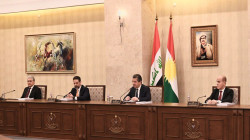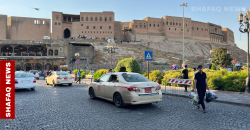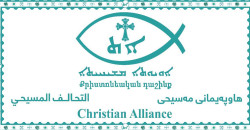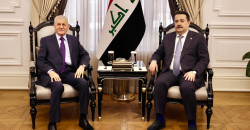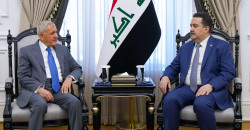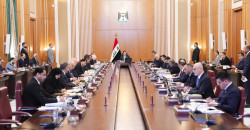The Last Chance: President Barzani’s visit could reshape Kurdistan’s future in Iraq’s political landscape
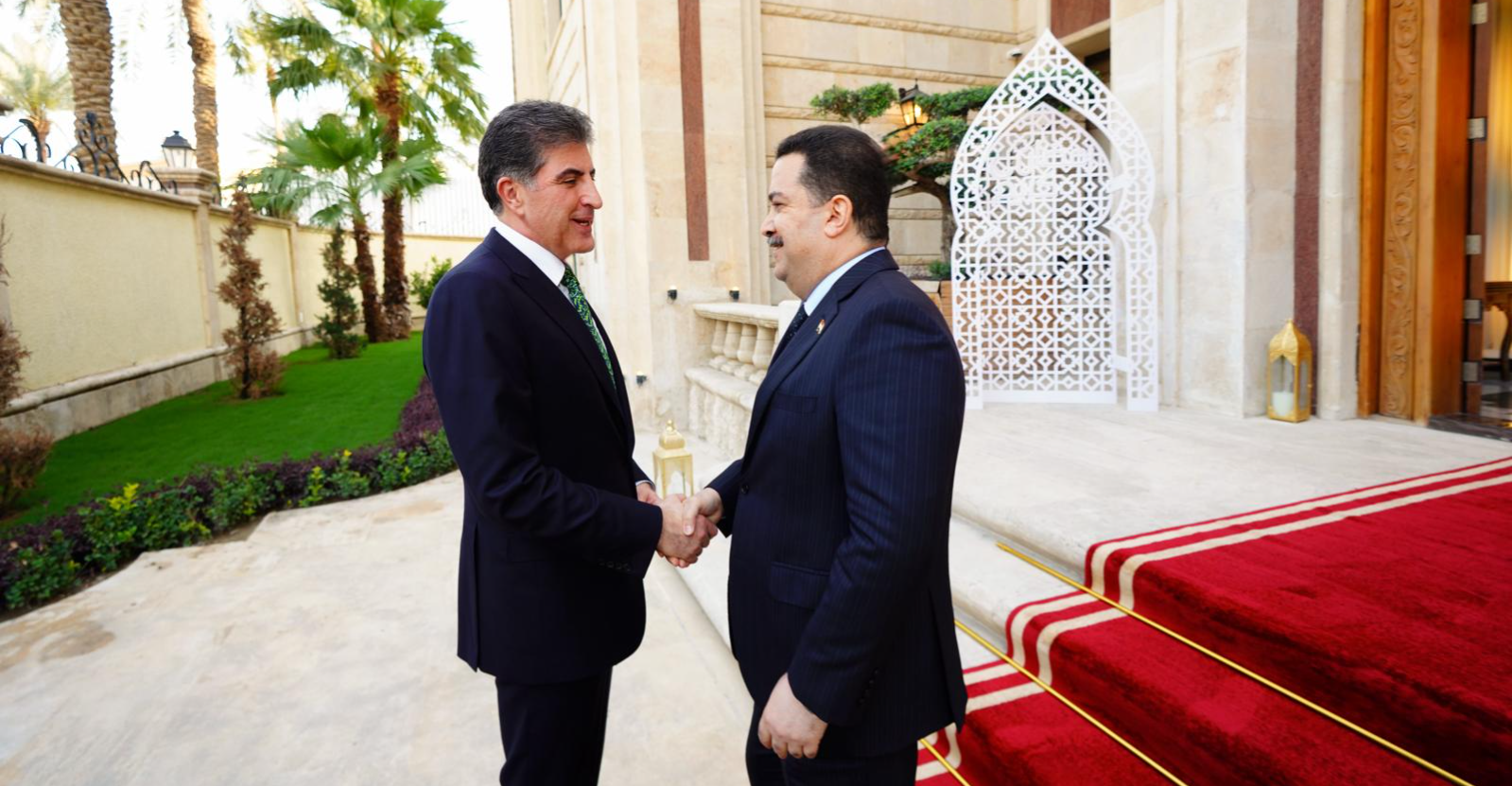
Shafaq News/ Kurdistan Region President Nechirvan Barzani is set to visit Baghdad on Sunday to attend a meeting for the State Administration.
Barzani’s visit, armed with pressing demands on salaries, oil exports, and electoral reforms, is considered by analysts to be Baghdad's 'last chance' to resolve lingering disputes with Erbil.
Failure to reach a lasting agreement could push the Kurdish leadership to withdraw, destabilizing the nation further.
KDP Warns of Unmet Demands
The Kurdistan Democratic Party (KDP) has hinted at the possibility of withdrawing from Iraq’s political process if the demands of the Kurdistan Region are not met.
KDP member Wafaa Mohammed told Shafaq News that a meeting on January 11 between Kurdish blocs and representatives of the region in Baghdad discussed the option of Kurdish withdrawal if Baghdad fails to honor agreements with the region. These include budget allocations, the implementation of Article 140, the enactment of an oil and gas law, halting Arabization campaigns, and the provision of military and health aid.
“If the Kurdish position is unified, withdrawal is a better option than accepting the humiliation imposed by the federal government,” Mohammed told Shafaq News. “Such a move would gain full support from the international community. However, I believe that experienced leaders and senior politicians from the Shiite and Sunni components will work to resolve with the Kurdish side, as Kurdish withdrawal would destabilize Iraq, something no one desires.”
Ultimately, Mohammed noted, withdrawal remains the best option for the Kurds if Baghdad fails to address their demands.
Unresolved Issues: Salaries
Life in the Kurdistan Region has been significantly disrupted due to a growing general strike across government offices, schools, universities, and traffic departments. The strikes are fueled by months of unpaid salaries, a recurring issue that remains unresolved.
For years, the salary dispute between Erbil and Baghdad has been a point of contention, reigniting each year during the federal budget approval process. The federal government imposes conditions on the Region, such as handing over oil revenues in exchange for its share of the budget. However, since the suspension of the Kurdistan Region’s oil exports through Turkiye’s Ceyhan port two years ago, Baghdad has categorized salary payments as "advances" rather than regular allocations.
In February 2024, the Federal Supreme Court mandated that the federal government pay Kurdistan Region employees directly, bypassing the Kurdish government. This decision followed months of salary delays.
In an extraordinary meeting in Erbil, Kurdistan Regional Government (KRG) Prime Minister Masrour Barzani criticized Baghdad's approach, stating, "Baghdad’s dealings with Kurdistan are not in line with its status as a federal entity. We have concluded that this behavior is unjust, unfair, and unacceptable. The relationship between the Kurdistan Region and Baghdad must be rectified."
On January 8, the KRG Council of Ministers reiterated its commitment to fulfilling its obligations and pursuing solutions with the federal government to secure salaries and financial entitlements for the region. "Despite efforts, the federal Ministry of Finance has delayed December 2024 salaries for Kurdistan Region employees, even though employees in other Iraqi provinces have been paid," the council noted.
KRG spokesperson Peshawa Hawramani said at a press conference that Baghdad had only sent less than 7% of the Region's financial entitlements so far, adding that "We have provided all financial and employee data, and our rights are enshrined in the amended budget law."
Political analyst and advisor to Kurdish leader Masoud Barzani, Kifah Mahmoud, described the situation as a deliberate effort to weaken the Kurdistan Region. "The Region’s full share of the budget has not been delivered, which is an injustice to its people. There is political pressure to undermine the Region’s powers, violating the constitution," Mahmoud told Shafaq News.
He emphasized that President Nechirvan Barzani will bring the unresolved salary, budget, and oil export issues to the State Administration meeting in Baghdad. "These challenges require genuine intentions, not just positive rhetoric, especially as Iraq navigates a sensitive phase with serious concerns about its future," Mahmoud said.
Thair Abdul-Kadhim Mukhaif, a member of the Parliamentary Committee on Regions and Governorates, also acknowledged the financial challenges facing the Kurdistan Region. "The Region consistently raises these issues with the federal government during every meeting, seeking solutions to the persistent salary delays," Mukhaif told Shafaq News.
Barzani’s Visit: Between Optimism and Caution
Political analyst Atheer Al-Shara viewed president Barzani's visit as a pivotal moment. "Erbil accuses Baghdad of failing to meet its commitments regarding salaries, warning that withholding funds could have serious consequences," Al-Shara told Shafaq News. "If no lasting solutions are reached, this visit might mark the Kurds’ final effort before deciding to withdraw from the political process."
Al-Shara stressed the importance of resolving disputes to serve the interests of both the Kurdish and Iraqi people.
In addition, political researcher Dr. Saif Al-Saadi expressed skepticism about reaching resolutions. "The Kurdistan Region claims it has adhered to the provisions of the federal budget, particularly Articles 13 and 14, by exporting oil through SOMO, meanwhile, Baghdad argues that the Region has failed to remit past revenues owed to the federal budget."
Al-Saadi believed these disputes are unlikely to be resolved soon. "The honeymoon period between the Sudani government and the KRG is over," he noted.
"With upcoming elections, tensions over the electoral law will escalate, not just between Baghdad and Erbil, but across the broader political spectrum."
He added that political parties are pushing for electoral laws tailored to their own interests, with little regard for public opinion. “This is also true in the Kurdistan Region, where political players are grappling with the implications of the Federal Supreme Court's decision to reduce the number of seats in the Kurdistan Parliament.”
"This could weaken the electoral influence of the Kurdistan Democratic Party, the Patriotic Union of Kurdistan, and emerging lists, which could influence the KRG’s political landscape," Al-Saadi explained.
Meanwhile, State of Law Coalition MP Baqir Al-Saadi, led by Nouri Al-Maliki, expressed optimism about the meeting. He told Shafaq News, "The talks between President Barzani and the Shiite Coordination Framework in Baghdad could resolve the Kurdistan Region’s salary crisis and address issues related to the upcoming elections."
